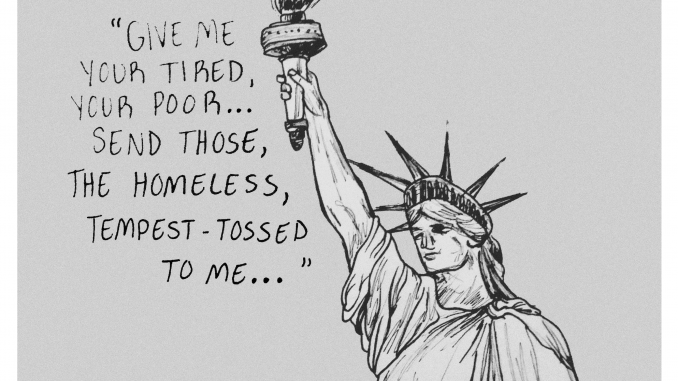
EDITORIAL:
On Friday, Jan. 27 2017, President Donald J. Trump issued an executive order calling for a strict investigation of certain foreign nationals pursuing entry into the United States.
This order prevents citizens of the following seven Muslim majority countries: Iran, Iraq, Libya, Somalia, Sudan, Syria and Yemen, from entering into the U.S. for 120 days while the investigation occurs, and prevents Syrian refugees from entering the U.S. indefinitely.
We, The Ranger, do not believe the United States’ borders should be open without regulation, but it seems the way this executive order is being carried out will provoke fear of and discrimination toward students and individuals simply because of their cultural backgrounds.
We do want our government to protect national security and prevent acts of terrorism, but, in the process of doing so, we do not want our government to fuel anti-immigrant hatred and prompt individuals to fear or disrespect people from other cultures.
It is ironic that the most recent issue of the Ranger is focused on cultural awareness and international travel at the same time Trump’s executive order is making travel more difficult and is stopping immigrants and refugees from entering the U.S.
Study abroad programs provide the opportunity to experience new cultures, environments and knowledge, while furthering one’s education; however, we also have the opportunity to build our cultural awareness without leaving town.
Amarillo College has an incredibly diverse population that includes students from Burma, Nigeria, India, Iran, Iraq, Libya, Somalia and the Sudan. We can learn a great deal from these refugees and immigrants—many of whom represent the people Trump’s executive order intends to keep out.
America is a country founded by immigrants, yet the president’s actions have left immigrants detained and denied entry to the U.S.
The executive order is designed to regulate borders and prevent acts of terrorism, and should not result in fear, hate crimes, discrimination, violence, protests or anything that further divides our population. This order is not a reason for our country to become more divided and hate-driven. We should welcome those with different cultural backgrounds than our own and take this time to learn about their values and beliefs.
We should continue to enrich ourselves in others’ cultures, whether that involves travel, or simply getting to know an individual in one’s hometown whose culture differs from his or her own.
We urge you to take this time to promote acceptance and cultural awareness. This order does not change one’s ability to spread awareness, acceptance and knowledge—so do not let it.

Leave a Reply